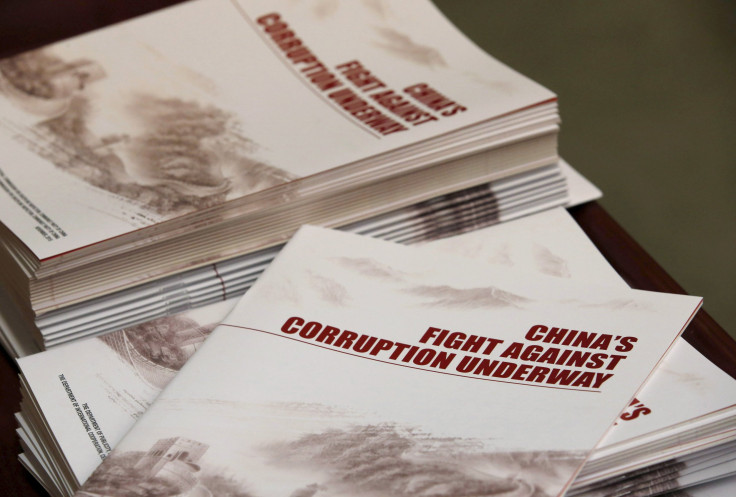China Punished Nearly 300,000 Officials For Corruption In 2015, Graft Watchdog Says

China’s ruling Communist Party said Sunday that it punished nearly 300,000 officials last year in a wide-ranging crackdown on corruption. The figures were released by the party’s official graft watchdog — the Central Commission for Discipline Inspection (CCDI) — during China’s annual parliamentary session.
According to media reports, which cited a statement published by the CCDI on its website, 200,000 party members were given “light punishment” for corruption, while 82,000 received “heavy punishment.” However, the body, which conducts internal investigations based on evidence it rarely discloses, did not specify a reason for the difference in penalties. The CCDI also sent out 54,000 letters reprimanding officials.
Since he assumed office in 2012, Chinese President Xi Jinping has initiated a massive campaign to fight corruption. The crackdown has netted several government officials, state-owned enterprises and the military, with the fallout affecting everything from prices of luxury goods in Hong Kong to gambling revenue in Macau.
However, the number of officials punished for corruption in 2015 is only a small fraction of the Chinese Communist Party’s 88 million members.
According to China’s state-run Xinhua news agency, last year 26 “tigers,” or high-ranking officials, were nabbed and were put under investigation for alleged corruption. Among these so-called tigers were China's former security chief Zhou Yongkang, who was sentenced to life in prison in June and Liao Yongyuan, the former vice chairman of the oil giant PetroChina, whom the CCDI accused of accepting “enormous” bribes.
“The Communist Party central leadership’s firm determination to fight corruption has not changed; the goal of preventing corruption from spreading has not changed,” Xi reportedly said in January, adding that he was determined to make China a place where “nobody dares to be corrupt.”
© Copyright IBTimes 2024. All rights reserved.












